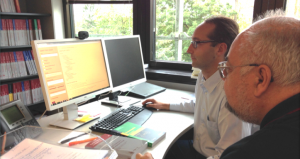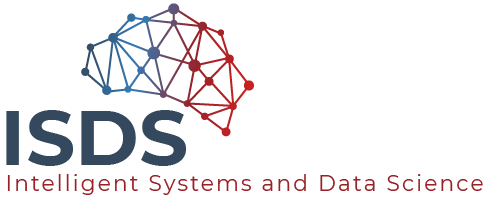The Open University team and Springer Nature have launched a new research project with the aim of developing new innovative solutions to support editorial activities at Springer Nature. The project will be lead by Enrico Motta and Francesco Osborne and will start on May 2018.

The SKM3 team and Springer Nature have been collaborating since 2015 in the development of an array of semantically-enhanced solutions supporting editors in i) classifying proceedings and other editorial products with respect to the relevant research areas and ii) taking informed decisions about their marketing strategy. These solutions include i) the Smart Topic API, which automatically maps keywords associated with published papers to semantically characterized topics, which are drawn from a very large and automatically-generated ontology of Computer Science topics; ii) the Smart Topic Miner, which helps editors to associate scholarly metadata to books; and iii) the Smart Book Recommender, which assists editors in deciding which editorial products should be marketed in a specific venue.
The objectives of the project include:
- The creation of a portal for releasing the Computer Science Ontology (CSO), a large-scale ontology of research areas that was automatically generated using the Klink-2 algorithm on the Rexplore dataset. The portal will enable to browse, download, and offer feedback on CSO. Currently, we provide two versions of CSO: CSO 1.0 (stable, 15k topics and 96k relationships), and CSO 2.0 (last version, 26k topics, 226k relationships)
- A new version of the Smart Topic Miner, a tool which uses semantic web technologies to classify scholarly publications on the basis of a very large automatically generated ontology of research areas. It was developed to support the Springer Nature Computer Science editorial team in classifying proceedings. A demo of the system is available at http://rexplore.kmi.open.ac.uk/STM_demo.
- Am automatically-generated ontology of research topics in the Engineering field. To this end, we plan to create a new version of Klink, which is an algorithm that combines semantic technologies, machine learning, and knowledge from external sources to automatically generate a fully populated ontology of research areas.
- The creation variety of analytics solutions for analyzing conferences, journals, topics and other research entities.
We are very excited to renew the collaboration with Springer Nature and we look forward to producing together excellent research solutions and innovative applications.
Relevant papers:
- Springer Nature collaboration: Osborne, F., Salatino, A., Birukou, A., Thanapalasingam, T., and Motta, E. (2017) Supporting Springer Nature Editors by means of Semantic Technologies. International Semantic Web Conference 2017, Industry Track. Vienna, Austria.
- Smart Topic Miner: Osborne, F., Salatino, A., Birukou, A. and Motta, E. (2016)Automatic Classification of Springer Nature Proceedings with Smart Topic Miner. International Semantic Web Conference 2016, Kobe, Japan. – slides
- Smart Book recommender: Osborne, F., Birukou, A., Thanapalasingam, T. , and Motta, E. (2017) Smart Book Recommender: A Semantic Recommendation Engine for Editorial Products. International Semantic Web Conference 2017, Poster Track. Vienna, Austria.
- Klink algorithm: Osborne, F. and Motta, E. (2015) Klink-2: Integrating Multiple Web Sources to Generate Semantic Topic Networks, International Semantic Web Conference 2015, Bethlehem, Pennsylvania, USA
- PhD work funded by Springer Nature: Salatino, A.A., Osborne, F. and Motta, E., 2017. How are topics born? Understanding the research dynamics preceding the emergence of new areas. PeerJ Computer Science, 3, p.e119.



 Scholarly Knowledge Mining
Scholarly Knowledge Mining
 Digital Humanities
Digital Humanities
 Data Science
Data Science
 Smart Cities and Robotics
Smart Cities and Robotics
You must be logged in to post a comment.